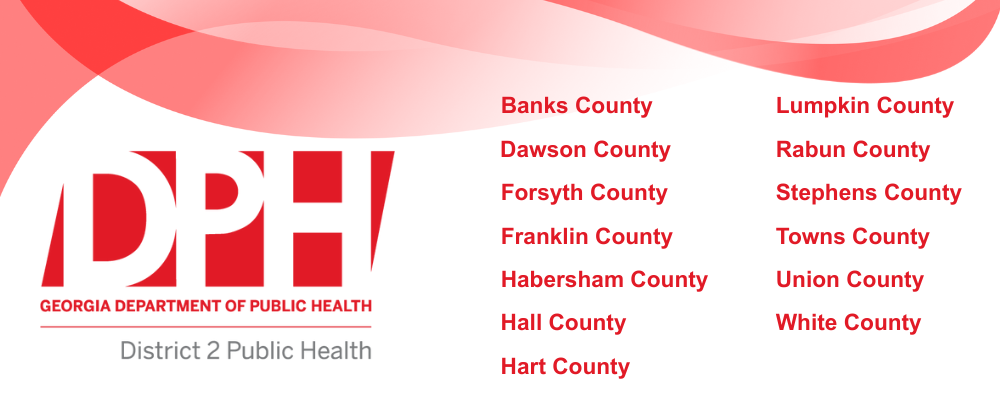| FOR IMMEDIATE RELEASE | CONTACT: |
| April 21, 2025 | Christina Joseph, Public Information Officer Christina.Joseph@dph.ga.gov PH: 770-851-4388 |
There have been two recent accounts of rabies in District 2. On January 8th, a raccoon in Franklin County tested positive for rabies after a dog was exposed. A second case on January 13th involved a raccoon that tested positive in Dawson County and exposed two dogs and their owner to the virus. Because rabies incidents occur in our area, it is crucial to take precautions to prevent infection.
Rabies is a fatal, but preventable virus that primarily affects wild mammals, including raccoons, skunks, bats, and foxes in Georgia. It spreads to other wild animals, pets, livestock, or humans, through bites, scratches, or exposure to the saliva of an infected animal. It can also spread if saliva from an infected animal enters the mucous membranes such as eyes or nose of another animal or human. Once contracted, the virus spreads to the brain, causing inflammation that is usually fatal once symptoms appear. However, if treatment is sought immediately after exposure, rabies can be treated effectively.
Preventative Measures: Protect yourself, pets, and children with the CDC guidelines and more below.
- Ensure your pets and livestock have received the most current rabies vaccination.
- Seek medical care promptly if you suspect potential rabies exposure.
- Avoid interacting with wild or unfamiliar animals. If you find an injured animal, refrain from feeding or attempting to help it.
- Encourage children to “love your own, leave other animals alone” as the Georgia Department of Public Health recommends.
- If you feed your pets outdoors, remove any leftover food to prevent attracting wild animals.
If you believe you’ve been exposed to rabies, clean any wounds with soap and water and seek medical care immediately. Rabies post-exposure prophylaxis is a highly effective treatment if administered quickly after exposure. It includes a vaccine series that is serviced at all major hospitals in District 2. Your local Environmental Health Office has information regarding vaccine access programs. If untreated, the virus is almost always fatal.
In humans, symptoms vary but may include fever, headache, and general malaise. As the virus progresses, symptoms of brain damage (encephalopathy) may develop, such as insomnia, anxiety, confusion, paralysis, hallucinations, excessive salivation and more. Once symptoms manifest, rabies is almost always fatal within a few days.
A common myth is that animals that drool or have foam at the mouth are always rabid. In reality, these symptoms may not appear until the later stages of the disease. Infected animals may display behaviors such as restlessness, aggression, trouble walking, or seeming unusually friendly. The Georgia Department of Natural Resources (DNR) has rigid regulations that prohibit the keeping of wild animals.
If you see a wild animal acting strangely, avoid the animal and contact the DNR Ranger Hotline at: 1-800-241-4113.
Environmental Health officials become involved in cases where exposure or potential exposure to rabies occurs. Their role is to ensure that domestic animals are vaccinated against rabies and to ensure the public is educated and informed about rabies. In many counties, Environmental Health is also responsible for collecting specimens from suspected rabid animals and coordinating testing of the specimen with the state lab. Additionally, Environmental Health officials notify individuals who have been exposed to risks and inform them of the need to seek medical care. The disease is tracked through Georgia’s disease surveillance system, and officials may collaborate with Animal Control to ensure public safety.
Ensure your pets are vaccinated for rabies today to prevent future exposure. To learn more about rabies prevention and treatment, visit: https://phdistrict2.org/environmental-health/7/ and https://dph.georgia.gov/environmental-health/rabies.
END
